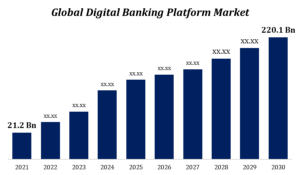The Evolution of Payment Systems: From Contactless to Digital Wallets
The world of payments has undergone a dramatic transformation over the past few decades. What started as a simple exchange of cash has evolved into a complex ecosystem of digital transactions, driven by technological advancements and changing consumer behaviors. From the rise of contactless payments to the widespread adoption of digital wallets, the evolution of payment systems is reshaping how we conduct transactions in a digital age.
1. The Emergence of Contactless Payments
Contactless payments marked a significant leap forward in the way consumers interacted with money. Introduced in the early 2000s, contactless technology allows users to make payments by simply tapping their card or device on a point-of-sale (POS) terminal. The technology behind this innovation, Near Field Communication (NFC), enables secure, fast, and convenient transactions without the need for physical contact.
Initially, contactless payments were met with skepticism, primarily due to concerns over security and a lack of widespread adoption by merchants. However, as more retailers embraced the technology and consumers began to appreciate the convenience, contactless payments gained traction. The tipping point came during the COVID-19 pandemic when hygiene concerns accelerated the shift away from cash and towards contactless methods, making it the preferred choice for many consumers.
2. The Rise of Digital Wallets
As the demand for convenience and security in payments grew, digital wallets emerged as a natural progression from contactless cards. Digital wallets, such as Apple Pay, Google Pay, and Samsung Pay, allow users to store their payment information on a smartphone or wearable device, enabling seamless transactions both online and in-store.
The concept of a digital wallet goes beyond just storing payment information. It combines multiple functionalities into a single platform, offering users the ability to make payments, store loyalty cards, access rewards, and even manage finances. The integration of biometric authentication, such as fingerprint and facial recognition, adds an extra layer of security, making digital wallets not only convenient but also secure.
Digital wallets have become increasingly popular, particularly among younger consumers who are more comfortable with mobile technology. Their adoption has been fueled by the growing number of merchants accepting mobile payments, as well as the integration of digital wallets into everyday apps and services, from ride-hailing to food delivery.
3. The Impact of Fintech Innovations
The fintech industry has played a crucial role in the evolution of payment systems, driving innovation and competition in a space traditionally dominated by banks and credit card companies. Startups and tech giants alike have introduced new payment solutions that challenge the status quo, offering faster, cheaper, and more efficient ways to transfer money.
One such innovation is the peer-to-peer (P2P) payment system, which allows users to send money directly to one another through apps like Venmo, PayPal, and Zelle. These platforms have revolutionized the way we handle small payments, from splitting a dinner bill to paying rent, by eliminating the need for cash or checks.
Cryptocurrencies, though still in their nascent stages, represent another disruptive force in the payment ecosystem. While not yet mainstream, the potential for blockchain-based payments to offer decentralized, borderless transactions has captured the attention of consumers and businesses alike. As regulatory frameworks develop and technology improves, cryptocurrencies could play a more significant role in the future of payments.
4. The Future of Payments: Beyond Digital Wallets
The payment landscape is constantly evolving, and the next frontier may involve even more advanced technologies. Concepts like biometric payments, where transactions are authenticated through voice, iris, or even heartbeat recognition, are being explored as potential successors to digital wallets.
Moreover, the integration of Artificial Intelligence (AI) and machine learning into payment systems promises to further enhance security, personalization, and efficiency. AI-driven fraud detection, for example, can analyze patterns in real-time to identify and prevent suspicious activities, offering consumers greater peace of mind.
The Internet of Things (IoT) is also poised to revolutionize payments, enabling seamless transactions between connected devices. Imagine a world where your smart refrigerator automatically orders and pays for groceries when supplies run low, or your car pays for tolls and parking as you drive. These are just glimpses of the potential that lies ahead in the world of payments.
The evolution of payment systems from contactless cards to digital wallets reflects a broader shift towards convenience, security, and innovation in the way we conduct transactions. As technology continues to advance, the payment industry will likely see even more transformative changes, with fintech at the forefront of driving these developments. For consumers and businesses alike, staying ahead of these trends will be essential to navigating the future of payments.


































